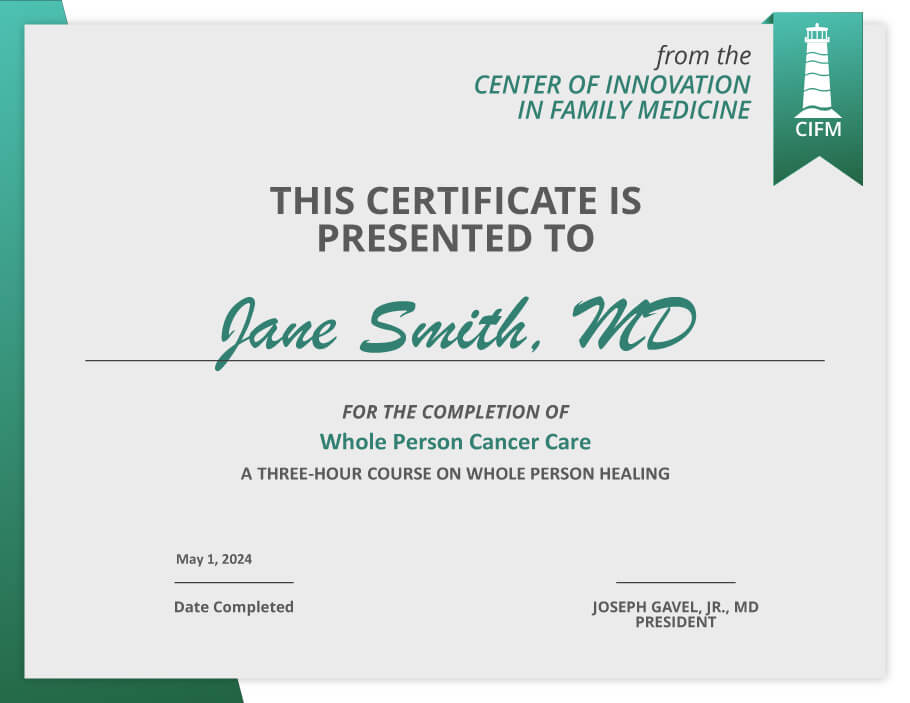Whole Person Cancer Care Course
Clinician as Healer
Whole person care – meeting the needs of patients beyond killing their cancer cells – has drawn the attention of leaders in oncology. From the National Academies of Medicine’s Delivering High-Quality Cancer Care to ASCO’s Oncology Medical Home Model, the new goal of cancer care is to improve overall health and wellbeing.
Whole person cancer care is a comprehensive approach that seeks to promote recovery and well-being while managing disease. The importance of what matters to the person guides treatment planning alongside what’s the matter. So the question is, are we using the right tools to actually help people heal? The SOAP note, with its focus on making the diagnosis and moving on in a standard treatment, does not help us consider these other factors.
The HOPE approach is a new way to structure practice to focus on all aspects of our patients’ lives. HOPE stands for healing-oriented practices and environments. It asks the patient not, “what’s the matter,” but, instead, “what matters?” Knowing this, we can then explore, with the patient, their concerns, hopes and priorities for care.
The three modules of this course present the concepts, tools, and strategies you need to change the way your practice provides care. Based on real-world experience of an Integrative Oncology Learning Collaborative as well as patients, you will hear how to transform your practice by involving all members of your team in the healing process. The wisdom and pearls will be invaluable to you.
This course is free of charge, made possible by a grant from the Healing Works Foundation.
This course is jointly provided by Tufts University School of Medicine Office of Continuing Education (TUSM OCE) and Center for Innovation in Family Medicine.
It is made possible by a grant from the Healing Works Foundation.


What You Will Learn
What You Will Learn

This three-part series on implementing whole person cancer care aims to teach all members of oncology practice teams how to envision and implement new approaches and new tools for practice.
Module 1: The Why and What of Whole Person Cancer Care
Module 2: Whole Person Healing Throughout the Cancer Care Journey
Module 3: Tools and Resources for Delivering Whole Person Care
To receive one CE credit/contact hours/attendance certificate per module, participants must register and view each module on the Meducate hosting site. Afterwards, participants must follow the link provided at the end of the course, which will take them to the eeds site to create a free account/log in in order to successfully complete the required post-test with a minimum score of 75% and complete the required online evaluation. Partial credit will not be awarded. Certificates will be available to access/print immediately upon completion of the post-test and evaluation on eeds.
All modules are offered at no cost.
